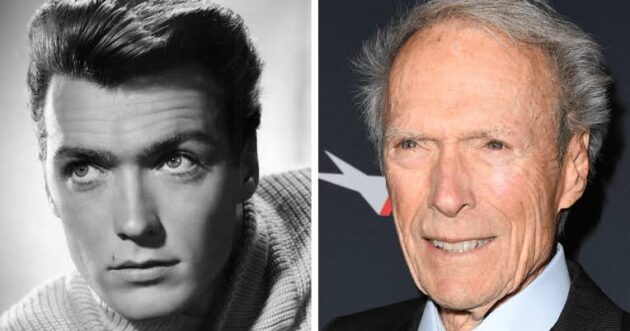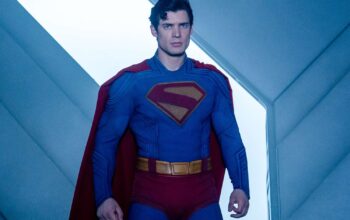Who is the best actor turned director?
The answer to this question is very simple.
Clint Eastwood is the best actor turned director.

In the world of cinema, he has made a significant impact both in front of and behind the camera.
His seamless transition from a leading actor to an acclaimed director makes him the best actor turned director
With decades of success in both roles, Eastwood has become one of Hollywood’s most respected and enduring figures.
Early Acting Career

Clint Eastwood’s journey began humbly in the 1950s. He gained early attention through his role in the hit television series Rawhide, which ran for eight seasons and helped him build a steady fan base.
However, it wasn’t until he landed the iconic role as the Man with No Name in Sergio Leone’s Dollars Trilogy, which are…
A Fistful of Dollars, For a Few Dollars More, and The Good, the Bad and the Ugly, that he exploded onto the international scene.
These spaghetti westerns redefined the Western genre and cemented Eastwood’s image as a quiet, rugged anti-hero.
He later embodied another legendary role: Inspector Harry Callahan in the Dirty Harry film series.
The character became a symbol of 1970s American cinema, mixing gritty action with controversial, hard-nosed justice.
These iconic performances laid the foundation for his larger legacy, establishing him as not just a bankable star, but a cultural icon.
Transition to Directing

While many actors remain in front of the camera, Clint Eastwood sought greater creative control over the stories he told.
In 1971, he made his directorial debut with Play Misty for Me, a psychological thriller that surprised audiences with its tense atmosphere and mature storytelling.
Eastwood’s performance in the film was praised, but it was his behind-the-camera work that really turned heads.
Rather than using his fame to boast, he doubled down on directing, choosing to challenge himself with stories that varied in genre, scope, and emotional depth.
Then, he began working with his production company, Malpaso Productions, allowing him to oversee his own films from start to finish. And over the decades, he became a director known for both consistency and risk-taking.
Directorial Style
Eastwood’s directing style is famously efficient. He doesn’t overwork his cast and crew, often completing films under budget and ahead of schedule.
What’s His secret?
He prefers to rehearse quickly and film scenes in as few takes as possible. He believes in trusting his actors, capturing authentic performances, and letting the material speak for itself.
Rather than relying on flashy camera tricks or overly stylized visuals, Eastwood leans on subtlety and substance.
His films are known for their straightforward visual storytelling, emotionally rich characters, and underlying moral complexity.
Whether he’s exploring war, redemption, family, or fame, he brings a grounded realism to every project.
Notable Directorial Works
Clint Eastwood’s directing resume is one of the most impressive in Hollywood history. Below are ten of his most acclaimed and influential films:
1. Unforgiven (1992)
A gritty Western that turned the genre on its head. It earned Eastwood his first Oscars for Best Director and Best Picture, and it’s still considered one of the best Westerns ever made.
2. Million Dollar Baby (2004)
A heartbreaking sports drama that tells the story of a female boxer and her tough trainer. The film won four Oscars and showcased Eastwood’s emotional depth as a filmmaker.
3. Mystic River (2003)
A dark, haunting drama about childhood trauma and murder. Eastwood’s direction helped Sean Penn and Tim Robbins both win Oscars for their powerful performances.
4. Letters from Iwo Jima (2006)
Told from the Japanese perspective of the Battle of Iwo Jima, this film humanized the “enemy” in a way few American war films ever dared. It received widespread acclaim for its bravery and nuance.
5. Gran Torino (2008)
Eastwood starred and directed this film about an aging war veteran confronting change, prejudice, and personal growth. It became a cultural hit and proved his continued relevance.
6. The Bridges of Madison County (1995)
A tender romance between a housewife and a traveling photographer, co-starring Meryl Streep. The film revealed a softer, more intimate side of Eastwood’s storytelling.
7. Changeling (2008)
A period mystery based on a true story involving a missing child and police corruption. Angelina Jolie starred, and Eastwood’s direction elevated the emotional weight of the film.
8. American Sniper (2014)
A biographical war film about Navy SEAL sniper Chris Kyle. It became the highest-grossing war film of all time and stirred national conversation.
9. Sully (2016)
The true story of pilot Chesley “Sully” Sullenberger and the emergency landing of Flight 1549. The film focused on heroism, public scrutiny, and human judgment.
10. Richard Jewell (2019)
A biographical drama about a security guard falsely accused of bombing the 1996 Atlanta Olympics. Eastwood examined media hysteria and justice with precision.
Legacy and Impact
Few figures in Hollywood have managed to evolve the way Clint Eastwood has. As an actor, he brought quiet intensity to every role.
As a director, he elevated the craft by embracing simplicity, character-driven storytelling, and emotional authenticity.
His ability to direct stories across multiple genres, romance, war, sports, crime, and drama, sets him apart from many of his peers. Eastwood has remained relevant for over six decades in a constantly changing industry.
He’s been awarded countless honors, including lifetime achievement awards, and his work continues to influence up-and-coming filmmakers.
Moreover, his career has broken down the stereotype that actors can’t make great directors. In fact, Eastwood has arguably done both at the highest level, earning critical and commercial success in both fields.
When pondering who is the best actor turned director, the answer becomes crystal clear, and it is Clint Eastwood.
His unmatched versatility, dedication to the craft, and ability to connect with audiences across generations make him not only a Hollywood legend but an all-time great in both acting and directing.
With more than 40 films directed and countless acting credits, Clint Eastwood continues to prove that excellence has no age limit. His name doesn’t just belong in the conversation, it defines it.
READ ALSO:
Can an Actor Become a Director?
What is the Scariest Movie of 2025?
How Do Actors Get Paid in Nigeria?
Best Movies of All Time, Exclusive Review on Viesic Entertainment
Behind the Scenes of Captain America: Brave New World



